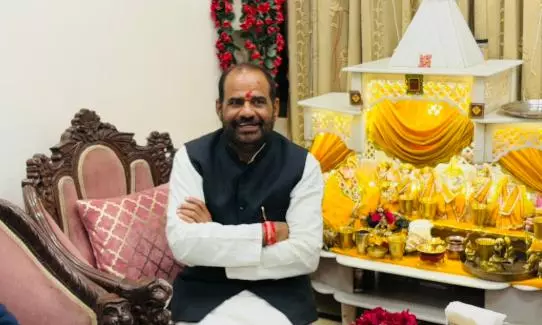
Delhi polls: Will Bidhuri’s rhetoric set the tone for BJP’s campaign?
BJP leader and Assembly candidate Ramesh Bidhuri's controversial remarks against Priyanka Gandhi and Atishi raise questions about BJP's political strategy.

BJP leader Ramesh Bidhuri’s sexist remarks targeting Congress MP Priyanka Gandhi Vadra and Delhi Chief Minister Atishi have ignited widespread condemnation. The comments have triggered debates about the BJP’s political culture and its tolerance for misogyny. In the latest episode of Capital Beat hosted by Neelu Vyas and Delhi University professor Shashi Shekhar Singh, senior journalist TK Rajalakshmi and Congress spokesperson Anuma Acharya discusses the controversy.
Offensive remarks and public backlash
During a public address, Bidhuri compared the roads of Kalkaji to Priyanka’s appearance and accused Atishi of altering her surname to change her father’s identity. Although Bidhuri later withdrew his comment about Priyanka, he showed little remorse. His remarks, coupled with a history of communal slurs, have drawn sharp criticism.
“This reflects a disturbing political culture that has emerged over the last decade,” said Shashi Shekhar Singh during the discussion. “Bidhuri’s remarks aren’t isolated but part of a broader trend of abusive language in politics.”
The backlash against Bidhuri highlights growing concerns over the normalization of such rhetoric. Wing Commander Acharya criticized the BJP. “This is not the culture of our country. The BJP promotes individuals who make hate speeches and disrespect women.”
Calculated targeting of women leaders?
Panelists on Capital Beat speculated whether Bidhuri’s comments were part of a deliberate strategy to undermine prominent women leaders. Atishi’s emotional press conference, where she defended her father and denounced Bidhuri’s remarks, resonated widely. “Will Ramesh Bidhuri stoop to such levels for the sake of elections?” she asked.
Journalist Rajalakshmi suggested that Bidhuri’s remarks were not accidental. “The lack of strong condemnation from BJP’s senior leadership reveals a tacit approval,” she noted. “These remarks appear to be aimed at consolidating certain voter bases while distracting from pressing issues.”
Acharya echoed similar sentiments, emphasizing the potential electoral motives. “Educated voters in Kalkaji are unlikely to support such behavior,” she said, highlighting how such strategies could backfire.
Broader implications for political discourse
The controversy over Bidhuri’s remarks has reignited debates about the state of political discourse in India. The panelists pointed out how inflammatory rhetoric often shifts focus away from critical issues like education, healthcare and governance.
“Such inflammatory remarks generate controversy but fail to address voters’ real concerns,” said professor Singh. He also noted that Bidhuri’s history of communal remarks, including those against BSP MP Danish Ali, have gone largely unpunished, raising questions about the BJP’s priorities.
Election tactics and leadership speculations
As Delhi gears up for elections, Bidhuri’s rhetoric could set the tone for the BJP’s campaign. His controversial remarks come amid speculation about his candidacy for the chief minister of Delhi. Panelists questioned whether his loyalty and ability to galvanize support would lead to a leadership role despite his contentious public image.
“Rewarding someone like Bidhuri with a prominent role would send a dangerous message about the BJP’s priorities and values,” said Acharya. Rajalakshmi agreed, pointing out the contradiction in BJP’s promotion of initiatives like ‘Beti Bachao Beti Padhao’ while tolerating behaviour that demeans women.
Also read: Bidhuri expresses regret as row erupts over his 'roads like Priyanka's cheeks' remarks
Time to shift focus
Bidhuri’s remarks have highlighted deeper issues within India’s political culture. Whether these comments are part of a deliberate strategy or isolated incidents, they have significant implications for the BJP’s image and electoral prospects. As Delhi prepares for elections, voters and political leaders must prioritize substantive issues, moving away from the politics of hate and misogyny.
The content above has been generated using a fine-tuned AI model. To ensure accuracy, quality, and editorial integrity, we employ a Human-In-The-Loop (HITL) process. While AI assists in creating the initial draft, our experienced editorial team carefully reviews, edits and refines the content before publication. At the Federal, we combine the efficiency of AI with the expertise of human editors to deliver reliable and insightful journalism.
